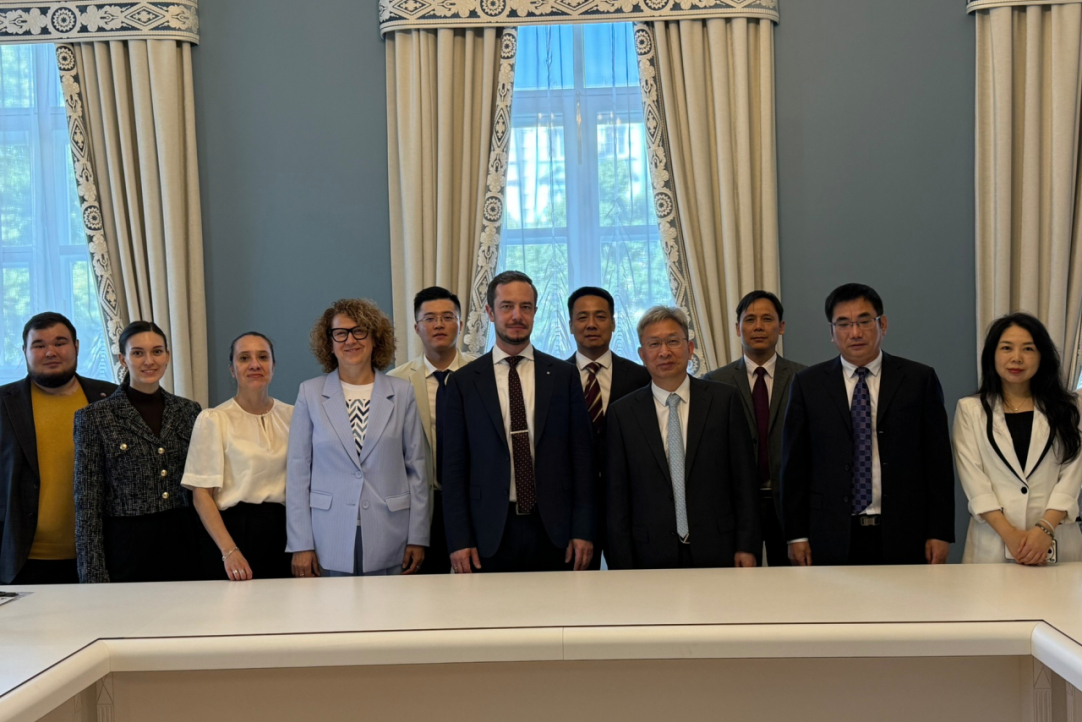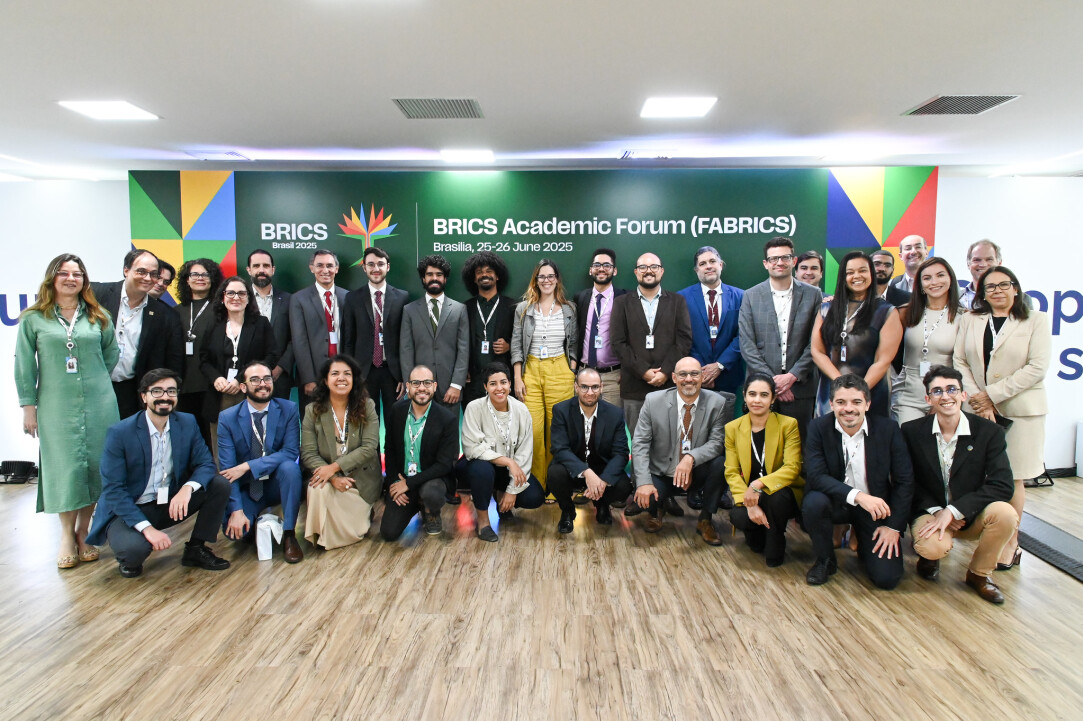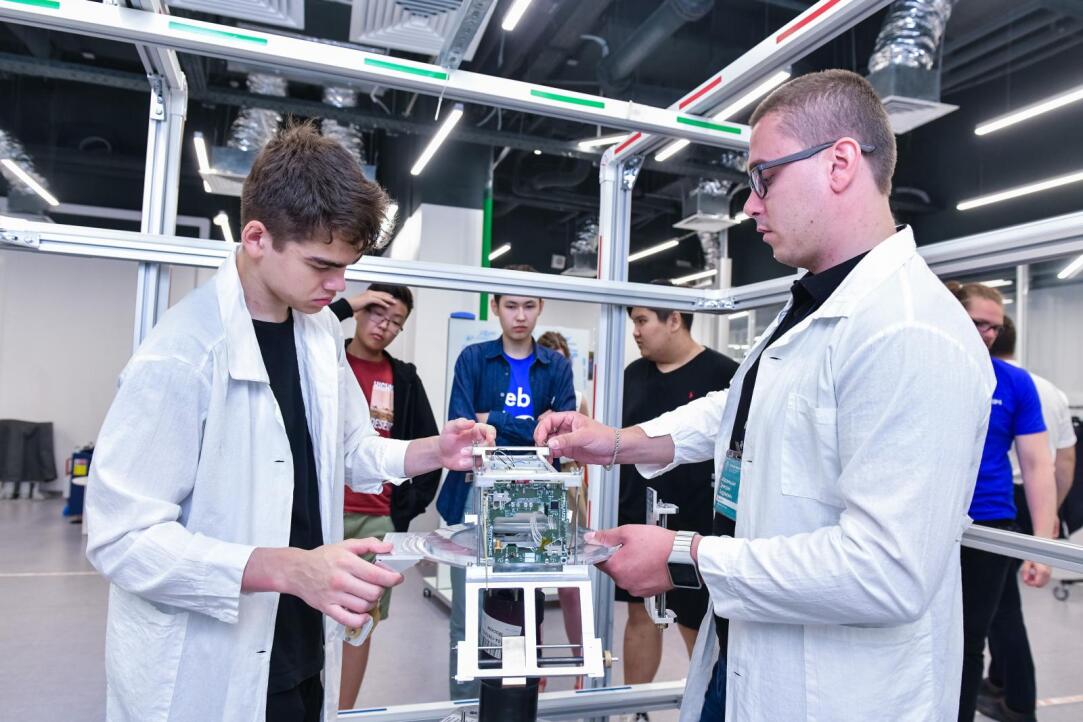
HSE and Communication University of Zhejiang Strengthen Partnership in Creative Education
On July 7, 2025, HSE University hosted a delegation from China at the historic Durasov House. The delegation, led by Wei Guotan, Chair of the University Council of Communication University of Zhejiang (CUZ), was welcomed by HSE Vice Rector Dmitry Zemtsov, Deputy Dean of the Faculty of Creative Industries Tatiana Rivchun, and representatives of the HSE Institute for Creative Industries Development and the HSE Art and Design School—the initiators of the partnership with their Chinese colleagues.

Mathematicians from HSE University–Nizhny Novgorod Solve 57-Year-Old Problem
In 1968, American mathematician Paul Chernoff proposed a theorem that allows for the approximate calculation of operator semigroups, complex but useful mathematical constructions that describe how the states of multiparticle systems change over time. The method is based on a sequence of approximations—steps which make the result increasingly accurate. But until now it was unclear how quickly these steps lead to the result and what exactly influences this speed. This problem has been fully solved for the first time by mathematicians Oleg Galkin and Ivan Remizov from the Nizhny Novgorod campus of HSE University. Their work paves the way for more reliable calculations in various fields of science. The results were published in the Israel Journal of Mathematics (Q1).

Recommender Systems: New Algorithms and Current Practices
The AI and Digital Science Institute at the HSE Faculty of Computer Science hosted a conference focused on cutting-edge recommender system technologies. In an atmosphere of active knowledge sharing among leading industry experts, participants were introduced to the latest advancements and practical solutions in recommender model development.

‘The Development of Creative Industries Has Become a Priority for Both Russia and Uzbekistan’
The Tourism Development Institute under the Committee for Tourism of the Republic of Uzbekistan and HSE University have signed a cooperation agreement aimed at establishing and developing academic, cultural, and other partnerships in the fields of education and tourism. The initiative for signing the agreement came from the Institute for Creative Industries Development at the HSE Faculty of Creative Industries.

‘Artificial Intelligence Has Become the Lifeblood of the Global Economy’
Experts from HSE University took part in the BRICS Academic Forum (FABRICS) held in the capital of Brazil this year. The main theme of the event was to discuss cooperation among countries in the Global South amid geopolitical turbulence and rapid technological change. Academics and experts from BRICS member states and partner nations explored topics such as global healthcare, AI technologies, trade, climate change, and reform of the multilateral global security and governance architecture.

Large Language Models No Longer Require Powerful Servers
Scientists from Yandex, HSE University, MIT, KAUST, and ISTA have made a breakthrough in optimising LLMs. Yandex Research, in collaboration with leading science and technology universities, has developed a method for rapidly compressing large language models (LLMs) without compromising quality. Now, a smartphone or laptop is enough to work with LLMs—there's no need for expensive servers or high-powered GPUs.

AI to Enable Accurate Modelling of Data Storage System Performance
Researchers at the HSE Faculty of Computer Science have developed a new approach to modelling data storage systems based on generative machine learning models. This approach makes it possible to accurately predict the key performance characteristics of such systems under various conditions. Results have been published in the IEEE Access journal.

MIEM Begins Open Testing of Claw Engine 2.0
The team at MIEM’s Game Engineering and Interactive Systems studio has begun open testing of the second version of its game engine, Claw Engine. The HSE News Service takes a closer look at the product, which is being developed by MIEM’s student project teams.

‘We Demonstrated That HSE University Can Not Only Build a Satellite, but Maintain Its Operation’
The first HSE University satellite has completed its work in orbit after more than 35,000 hours of trouble-free operation, one billion kilometres travelled (24,600 orbits around the Earth), and hundreds of full-frame shots taken of the Earth's surface across an area of 320,000 km2. The HSE News Service shares the results of the satellite’s mission and the team’s plans for the near future.

Recruitment Campaign 2025: How HSE Attracts Top International Talent
For nearly two decades, HSE University’s international recruitment programmes have brought highly qualified professionals from the global academic job market to Russia—from recent PhD graduates of leading universities to experienced international scholars. On September 1, 2025, the university expects 50 new international faculty and researchers to join its academic team.

